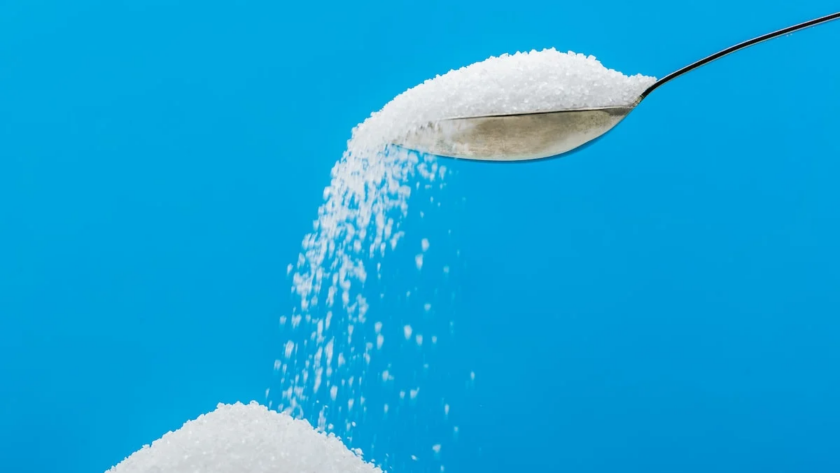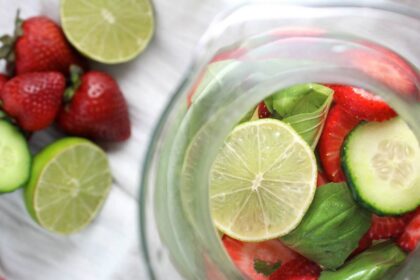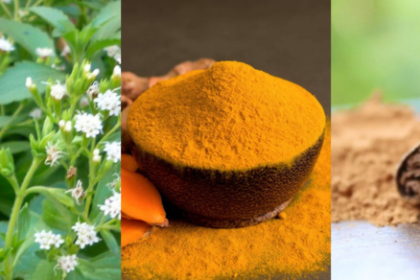Hiccups are such a pain – a seemingly benign yet exasperating condition that can strike at the most inconvenient moments. While contemporary solutions abound, it’s worth delving into the annals of history to discover the ingenious folk remedies that our forebears employed with remarkable success.
In this exploration, we’ll journey back in time to unearth five ancient techniques that were once considered indispensable for banishing hiccups. These age-old remedies, passed down through generations, offer a fascinating glimpse into the resourcefulness of our ancestors.
From intriguing herbal concoctions to curious physical maneuvers, each method has stood the test of time, promising swift relief for this age-old nuisance. Join us as we unravel the secrets behind these ancient hiccup-busting rituals, shedding light on practices that continue to resonate in our modern world.
What is a Hiccup?
Hiccups, scientifically referred to as “singultus,” are a peculiar and often amusing physiological phenomenon that can catch us off guard at the most unexpected moments. This curious event is characterized by sudden, involuntary contractions or spasms of the diaphragm muscle, followed by the abrupt closure of the vocal cords, resulting in the familiar “hic” sound.
While hiccups are typically harmless and self-limiting, their exact cause remains a subject of ongoing scientific inquiry. They occur when there is an unexpected and uncontrolled stimulation of the diaphragm, the primary muscle responsible for the process of breathing. This sudden jolt to the diaphragm leads to its contraction, causing a sharp intake of breath, and then the rapid closure of the vocal cords, resulting in the characteristic sound.
A myriad of factors can trigger hiccups, ranging from the benign to the mildly irritating. These include, but are not limited to:
- Rapid Ingestion of Food or Beverages: Consuming food or drinks too quickly can introduce excess air into the digestive system, leading to diaphragmatic irritation.
- Carbonated Beverages: The effervescence in carbonated drinks can lead to increased ingestion of air, potentially contributing to hiccups.
- Spicy or Highly Seasoned Foods: The ingestion of piquant dishes can sometimes cause irritation in the digestive tract, triggering hiccups.
- Overindulgence in Food: Eating to excess can distend the stomach, possibly leading to irritation of the diaphragm.
- Sudden Changes in Temperature: The consumption of very hot or icy-cold beverages may prompt diaphragmatic spasms in sensitive individuals.
- Emotional Responses: Strong emotional states, such as anxiety, excitement, or stress, have been known to induce hiccups in some individuals, although the precise mechanisms remain the subject of ongoing study.
- Certain Medical Conditions: In rare cases, hiccups can be indicative of underlying medical issues. Conditions such as gastroesophageal reflux disease (GERD), neurological disorders, or surgical irritation of the diaphragm can lead to persistent or chronic hiccups that necessitate medical evaluation.
Though typically benign and transient, persistent hiccups that extend beyond a brief period may warrant professional medical attention. In such cases, a healthcare provider can conduct a thorough assessment to identify any underlying conditions that may be contributing to the prolonged bout of hiccups.
In the grand tapestry of human physiological quirks, hiccups remain a fascinating and enduring enigma, reminding us of the intricate interplay between our bodies and the world around us. Understanding the mechanisms behind this age-old phenomenon continues to captivate researchers, as we endeavor to unravel the complexities of the human body in all its curious manifestations.
5 Ancient Remedies To Cure Hiccups
- Breath-Holding Technique:
- Description: An ancient technique involves taking a deep breath, holding it for as long as comfortably possible, and then exhaling slowly. This method is believed to regulate the diaphragm’s contractions and interrupt the hiccup cycle.
- Historical Background: This method has been passed down through generations and is still a commonly recommended natural remedy for hiccups.
- Sugar and Bitters:
- Description: Mixing a teaspoon of sugar with a few drops of bitter substances like vinegar or lemon juice to create a paste. Consuming this mixture is thought to stimulate the taste buds and potentially interrupt the hiccup reflex.
- Historical Background: This remedy draws from ancient herbal medicine practices that utilized the properties of natural substances to address various ailments.
- Honey & Castor Oil:
- This remedy finds its roots in Ayurveda.
- Take one teaspoon of honey and 1 teaspoon castor oil, dip your finger in the mix and lick your finger. Repeat this 2-3 times. This solution is known as the anti-hiccup militant that help you regain the normal composure.
- Get Your Organic Cold Pressed Castor Oil Here
- Supine Position:
- Description: Lying down on one’s back and taking slow, controlled breaths. This position is believed to encourage diaphragmatic relaxation and alleviate hiccups.
- Historical Background: The supine position has been advocated in various cultures as a natural way to help control involuntary diaphragmatic contractions.
- Gargling with Cold Water:
- Description: Gargling with ice-cold water is thought to stimulate the vagus nerve, which plays a role in regulating bodily functions, including hiccups.
- Historical Background: This practice hails from traditional remedies that harness the power of cold water for various therapeutic purposes.
It’s important to note that while these remedies have been used historically, their effectiveness can vary from person to person. If hiccups persist or become chronic, seeking medical advice is advisable to rule out any underlying medical conditions. Always consult with a healthcare professional before trying any natural remedies, especially if you have pre-existing health conditions or concerns.
How Can I Prevent Hiccups
Preventing hiccups entirely can be challenging, as they can be caused by a variety of factors, some of which are beyond our control. However, there are some general practices that may help reduce the likelihood of experiencing hiccups:
- Eat and Drink Mindfully:
- Avoid rapid consumption of food and beverages, as this can lead to swallowing air, which may trigger hiccups.
- Avoid Overeating:
- Eating large meals can distend the stomach, potentially irritating the diaphragm and leading to hiccups. Opt for smaller, more frequent meals instead.
- Moderate Alcohol and Carbonated Beverages:
- Alcoholic drinks and carbonated beverages can introduce excess air into the digestive system, potentially leading to hiccups. Consuming these in moderation may help reduce the likelihood.
- Maintain a Steady Temperature:
- Avoid rapid temperature changes in beverages, as extreme cold or hot liquids may irritate the digestive system and trigger hiccups.
- Manage Stress and Anxiety:
- Practice relaxation techniques, such as deep breathing, meditation, or yoga, to help alleviate stress and anxiety, which can sometimes lead to hiccups.
- Avoid Spicy Foods:
- For some individuals, highly spiced or seasoned foods can lead to digestive irritation and hiccups. Adjusting your diet to minimize such irritants may be beneficial.
- Stay Hydrated:
- Ensuring proper hydration can help maintain normal bodily functions, potentially reducing the likelihood of hiccups.
- Limit Smoking:
- Smoking can introduce excess air into the digestive tract, potentially contributing to hiccups. Reducing or quitting smoking may be beneficial.
- Practice Good Posture:
- Maintaining good posture while eating and drinking can help prevent swallowing air, which may contribute to hiccups.
- Avoid Excessive Excitement or Stress:
- Strong emotions, especially when accompanied by rapid breathing, can sometimes lead to hiccups. Practicing relaxation techniques can help mitigate this.
While these practices may help reduce the frequency of hiccups, it’s important to note that occasional hiccups are normal and usually not a cause for concern. If hiccups become persistent, severe, or are accompanied by other concerning symptoms, it’s advisable to seek medical attention to rule out any underlying medical conditions.
In the tapestry of human experience, hiccups remain a curious and often amusing phenomenon. Throughout history, our ancestors devised ingenious remedies to tame this unpredictable reflex, drawing upon the wisdom of tradition and the resources of the natural world. From breath-holding techniques to the curious alchemy of sugar and bitters, these age-old practices offer a fascinating glimpse into the resourcefulness of generations past.
While modern medicine has advanced by leaps and bounds, there is a certain timeless charm in exploring these ancient remedies. They serve as a reminder that sometimes, the simplest solutions can hold surprising efficacy. As we navigate the complexities of our modern lives, these ancestral wisdoms offer a grounding connection to our heritage.
Yet, it’s crucial to remember that in cases of persistent or severe hiccups, seeking the guidance of a healthcare professional is paramount. While our forebears’ remedies provide intriguing insights, they are not a substitute for expert medical advice and care. With their guidance, we can navigate the intricacies of our bodies and minds, blending the wisdom of the past with the advancements of the present. In doing so, we honor our ancestors while forging our own path towards wellness and understanding.





